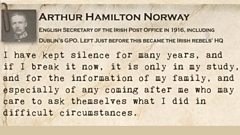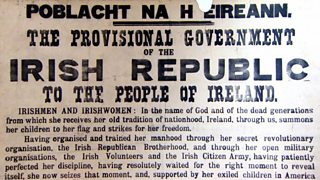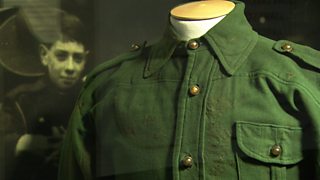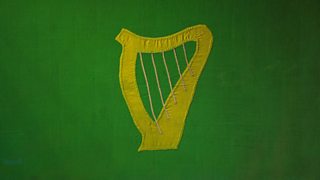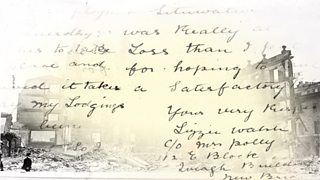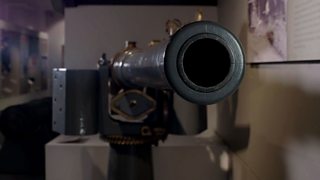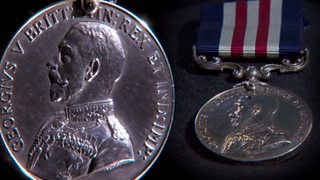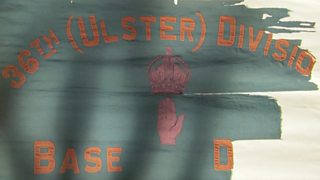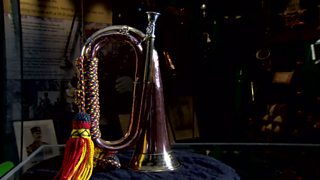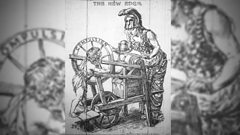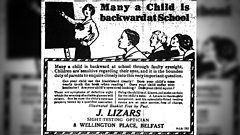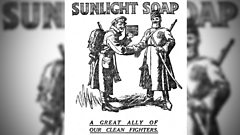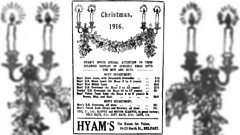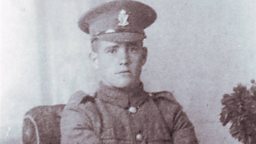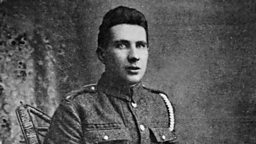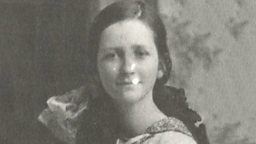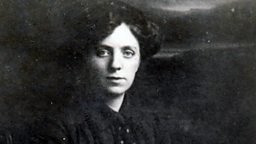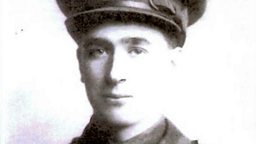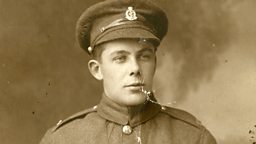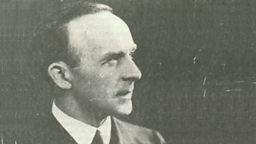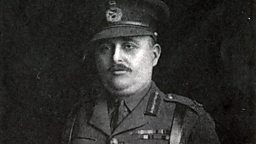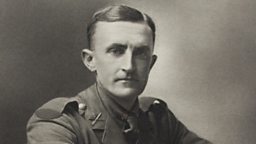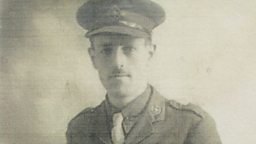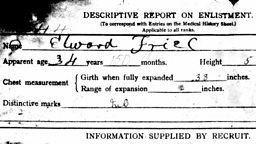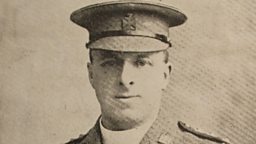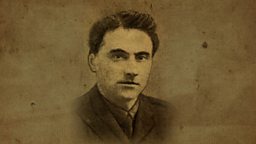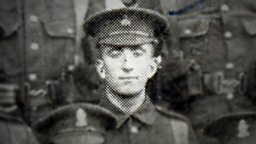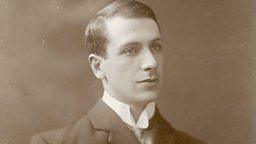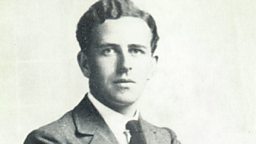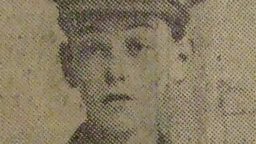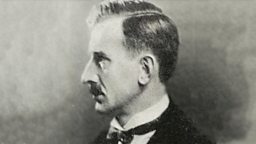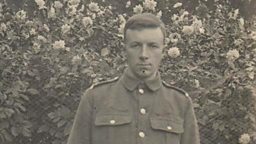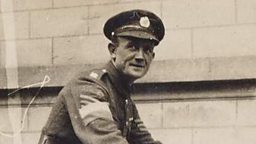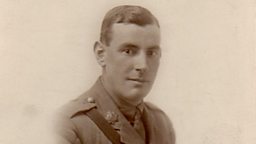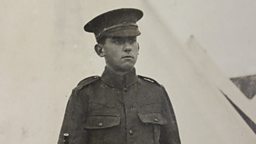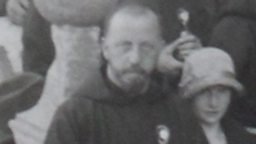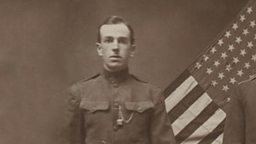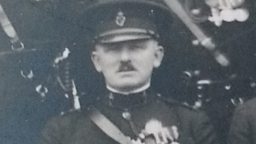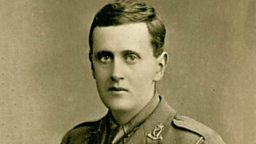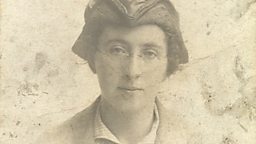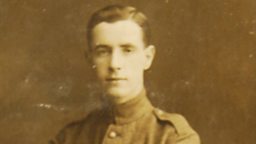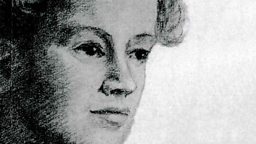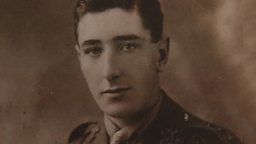The Hamilton Norways
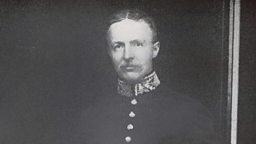
Front row view
In Dublin in Spring 1916, Arthur and Mary Louisa Hamilton Norway were eagerly looking forward to an event at the city's General Post Office.
The GPO ... a public building of which any great city might be proud
The GPO's re-opening was taking place on March 6th: Arthur, as Secretary of the Post Office in Ireland, had just had the building, the country's main communications centre, handsomely renovated.
An English couple, Arthur's job had originally brought them and their two sons to Dublin in 1912. On arrival, said his wife, Arthur was "scandalised at the condition of the GPO … a miserable dirty little place …"
So, determinedly, "H. hustled, and the work was completed and opened to the public", the GPO transformed to be "really beautiful … a public building of which any great city might be proud."
Safest place in Dublin
Mary Louisa thought the GPO simply, "the safest place in Dublin." So much so that the family stored all its valuables there – including their mementoes of their beloved son Frederick.
Killed while serving in France in 1915, Frederick was just 19 years old, and their keepsakes of him were treasured: "all our dear F[red]'s books, sword, and all his possessions … we value more than anything else in the world."
Memories of Frederick were difficult in their family home. Arthur said "the associations of it became too keenly painful". They moved into a suite in Dublin's Royal Hibernian Hotel, and placed Frederick’s "precious things" and family items in the GPO's safes and "great mahogany cupboards."
Family of writers
So, that Spring, Mary Louisa, Arthur and schoolboy son Nevil found themselves at the heart of Dublin city. With huge emotional investment in the building which was to become the Irish rebel's HQ, they had a close-up view of the seismic events that were to unfold.
Between them, Mary Louisa and Arthur would put the family gift for writing to keen use. Arthur wrote a memoir, Irish Experiences In War, first published by Keith Jeffery in 1999, and held at the National Library of Ireland. Mary Louisa wrote four long letters to family, originally published not long after the Easter Rising as The Sinn Féin Rebellion As I Saw It. These would become some of the best known and most vivid descriptions of the events.
Nevil, who himself had some lively experiences during the Easter Rising, went on to become writer Nevil Shute, with works including novels A Town Like Alice and On The Beach.
Easter week 1916
Monday, 24 April
On the morning of Easter Monday, Arthur Hamilton Norway was called urgently to Dublin Castle. "I locked my desk, gave the key of my room to the porter, who was the only person on duty, the day being a bank holiday, and left, saying I should be back in half an hour."
By late afternoon, he was yet to return and his wife became concerned: "Since then the Post Office had been stormed and the guard shot or overpowered, and the Sinn Feiners were in possession of the whole building, and firing volleys on the police from the windows! Imagine my feelings!"
Before Easter 1916 the GPO had been Arthur's place of work but, much to his horror, it quickly became transformed: "In the handsome building of the General Post Office, which I had left so short a while before, the Union Jack was hauled down, and the green flag of the Irish Republic floated in its place. The Office in fact was rushed twenty minutes after I had left it, my room being appropriated for the rebel headquarters."
Tuesday, 25 April
After Easter Monday, Arthur Hamilton Norway did not record much detail of his experiences in the Easter Rising, although he does declare that his wife "was invaluable to me in the days which followed", noting in particular "her cool pluck, and excellent good sense."
For her part, Mary Louisa kept a detailed diary of the events of the week as she saw them, and she takes up the story on Tuesday morning.
"This morning we hear the military are pouring into the city, and are in the Shelbourne Hotel and Trinity College. The rebels have barrickaded Sackville Street, and it is expected to be very fierce fighting over the GPO. It is terrible!"
"Martial law was proclaimed at 11.30am and the rebels given four hours to surrender. ... At 3.30pm, as there had been no surrender, the troops started to clear St Stephen’s Green, and raked it with machine-guns from the top of the Shelbourne Hotel and the United Service club. We hear there are many casualties."
"N [Nevil] has just come in and says a big fire is raging in Sackville Street in the shops opposite the GPO, supposed to have been caused by the mob finding fireworks in a toy shop. The fire brigade arrived almost at once and could easily have overcome the fire, but the brigade was fired on by the Sinn Feiners, making it impossible for them to bring the engines into action, and they had to beat a retreat and leave the shops to burn themselves out."
Wednesday, 26 April
"At around 5am, while we were dressing a terrific bombardment with field guns began - the first we had heard - and gave me cold shivers. The sound seemed to come from the direction of the GPO, and we concluded they were bombarding it. It went on for a quarter of an hour - awful!"
"We think that they are leaving the Post Office for a time with the hope that when other strongholds are taken the Republican Government will surrender. H has just been summoned to the Castle, and there is no knowing when he will be back. All who go out carry their lives in their hands."
"Lord Shaw tells me that 30,000 troops are landed at Kingstown this morning, and we hear they are amazed at their reception, as they had been told that they were going to quell a rebellion in Ireland, and lo! On their arrival at Kingstown the whole population turned out to cheer them, giving them food, cigarettes, chocolate and everything the hospitable inhabitants could provide, so that the puzzled troops asked plaintively: 'Who then are we going to fight, and where is the rebellion?'"
"However they were quickly disillusioned, for in marching into Dublin, ... the battalion of Sherwood Foresters came under terrible cross-fire and were just shot down, unable to return a single shot."
Thursday, 27 April
"All the afternoon an awful battle raged in the neighbourhood of the river and quays, and the din of the great guns and machine guns was tremendous."
"The shells had started several fires; nearly all the shops on the quay on the side of the Custom House were burning yesterday afternoon, and later in the evening many others broke out."
"I cannot give you any idea of what it was like when I went to bed. I sent for Mrs B, the manager's wife, such a splendid little woman, and together we watched it from my window, which is high up and looked in the right direction."
"It was the most awe-inspiring sight I have ever seen. It seemed as if the whole city was on fire, the glow extending right across the heavens, and the red glare hundreds of feet high, while above the roar of the fires the whole air seemed vibrating with the noise of the great guns and machine guns. It was an inferno!"
Friday, 28 April
"In the morning I got an urgent message from the Red Cross asking me to make more armlets for the workers. With two other ladies I had been making them yesterday, so I collected my helpers and we worked until lunch, when another request came that we would make four large Red Cross flags, as they were going to try to bury some of the dead and needed the flags for the protection of the parties. We have just finished them, and are wondering what will be the next call. It is such a good thing I have my sewing machine here."
"Colonel C has just come in, having been in the thick of it for forty-eight hours. He tells us the Post Office has been set on fire by the Sinn Feiners, who have left it. If this is true, and it probably is, I fear we have lost all our valuable possessions."
"The serious problem of food is looming rather near, as nothing has come into the city since Saturday. Boland's bakery, an enormous building, is in the hands of the rebels, who have barricaded all the windows with sacks of flour. ... There is not a chance of getting them out in any other way. The Rebels also have Jacob's biscuit factory, where there are still huge stores of flour. Every prominent building and every strategic position was taken before the authorities at the Castle woke to the fact that there was a rebellion!"
Saturday, 29 April
"The fires last night were terrible, but we dared not look out. Eason's Library and all the shops and buildings between O'Connell Bridge and the GPO on both sides of Sackville Street are gone."
"We hear that many of our wounded are being sent to Belfast, as the hospitals here are crowded, and the food problem must soon become acute."
4pm on Saturday: "Sir M N has just rung up to say the rebels have surrendered unconditionally. We have no details, and the firing continues in various parts of the town. But if the leaders have surrendered it can only be a question of a few hours before peace is restored, and we can go forth and look on the wreck and desolation of this great city."
"So ends, we hope, this appalling chapter in the history of Ireland – days of horror and slaughter comparable only to the Indian Mutiny."
Sunday, 30 April
"The shooting is by no means over, as many of the Sinn Fein strongholds refuse to surrender. Jacob's biscuit factory is very strongly held, and when the rebels were called on to surrender they refused unless they were allowed to march out carrying their arms."
"Some of the staff who came here this morning had seen a copy of the Daily Mail yesterday, which devoted about six lines to the condition of things in Ireland and spoke of a Sinn Fein riot in which four soldiers and about six rebels had been killed. If that is all the English people are being told of a rebellion which 30,000 troops and many batteries of artillery are engaged in putting down, my letter will be rather a surprise to you; and as the news must come out, the English people will hardly be pleased at being kept in the dark. Such a rebellion cannot be suppressed like a Zeppelin raid. During the first three days our casualties were nearly 1000."
"The College of Surgeons in St Stephen's Green is still held by the rebels, so the firing of machine-guns from the Shelbourne Hotel and the United Service Club goes on as before, and there is intermittent firing in all directions."
Monday, 1 May
"I have just returned from walking round the GPO and Sackville Street with H and some of the officials. It passes all my powers of description, only one word describes it, 'Desolation'. If you look at pictures of Ypres or Louvain after the bombardment it will give you some idea of the scene."
"We looked up through the windows of the GPO and saw the safe that was in H's room still in the wall, and the door does not appear to have been opened or the safe touched, but the whole place has been such an inferno one would think the door must have been red hot. Among all the debris the fire was still smouldering, and we could not penetrate inside."
Once she did manage to get into the room, Mary Louisa made a devastating discovery.
"Everything belonging to F has gone; as he gave his life in the war, so an act of war has robbed us of everything belonging to him - our most precious possession. It has almost broken H up; but he has no time to think, which is perhaps a good thing."
Gone too was the painstaking reconstruction of the GPO overseen by her husband which had been unveiled only six weeks previously.
"It was really beautiful. The roof was a large glass dome, with elaborate plaster work, beautiful white pillars, mosaic floor, counters all of red teak wood, and bright brass fittings everywhere - a public building of which any great city might be proud; and in six weeks all that is left is a smoking heap of ashes!"
After the Rising
No trace of fear or panic
By Tuesday 2 May, with the fighting all but over, Mary Louisa began to reflect on the events of the previous eight days.
"Last evening after tea, I walked all round the ruined district with N and two ladies from the hotel. ... From time to time we came across on the unwashed pavement the large dark stain telling its own grim story."
"After dinner we were sitting in the room H uses as a temporary office overlooking the street, when firing began just outside. ...It was probably the last stand of the rebels, and the firing was very sharp and quick. ... Since then we have not heard a shots fired; and it would seem that as we were present at the first shots fired in Sackville Street on Easter Monday so we have been present at the last fired eight days later in Dawson Street."
"Out of all the novel experiences of the last eight days two things strike me very forcibly. The first is that, under circumstances that might well have tried the nerves of the strongest, there has been no trace of fear or panic among the people in the hotel, either among the guests or staff. Anxiety for absent friends of whom no tidings could be heard, though living only in the next square, one both felt and heard; but of fear for their own personal safety I have seen not one trace, and the noise of battle after the first two days seemed to produce nothing but boredom …”
"The other is a total absence of thankfulness at our own escape. It may come; I don't know. Others may feel it; I don't. I don't pretend to understand it; but so it is. Life as it has been lived for the last two years in the midst of death seems to have blunted one's desire for it, and completely changed one’s feelings toward the Hereafter."
Men who will rule with firmness
Mary Louisa Hamilton Norway concluded a letter to her sister on 2 May with her hopes for the future of a city and a country so close to her heart.
"Surely it must be possible to find men who will rule with firmness and understanding this fine people - so kindly, so emotional, so clever, so easily guided, and so magnificent when wisely led. One prays they may be found, and found quickly, and that we may live to see a Dublin restored to its former stateliness with a Government worthy of the nation."
Some treasures salvaged
As the ruins of the GPO were inspected in the wake of the Easter Rising, some of Frederick Hamilton Norway's prized possessions were salvaged, much to his mother's delight.
These items included his field glasses, some official documents and "three little brooches that F had given me on various birthdays when a wee boy ... how glad I was to see them again!"
These pages are based on personal testimonies and contemporaneous accounts. They reflect how people saw things at that time and are not meant to be a definitive history of the period.
The words of Arthur Hamilton Norway
Voices 16 objects
Voices 16 galleries
Credits
Both Arthur Hamilton Norway and Mary Hamilton Norway's accounts are taken from The Sinn Féin Rebellion As They Saw It, published by the Irish Academic Press - edited and with an introduction by Keith Jeffery. Their testimony was taken from the papers of Dr Leon O'Broin, in the National Library of Ireland. All reproduced here with thanks to the family of the Hamilton Norways, the Irish Academic Press and the National Library of Ireland.
Image of Arthur Hamilton Norway © Royal Mail Group Ltd 1916, courtesy of The Postal Museum.
